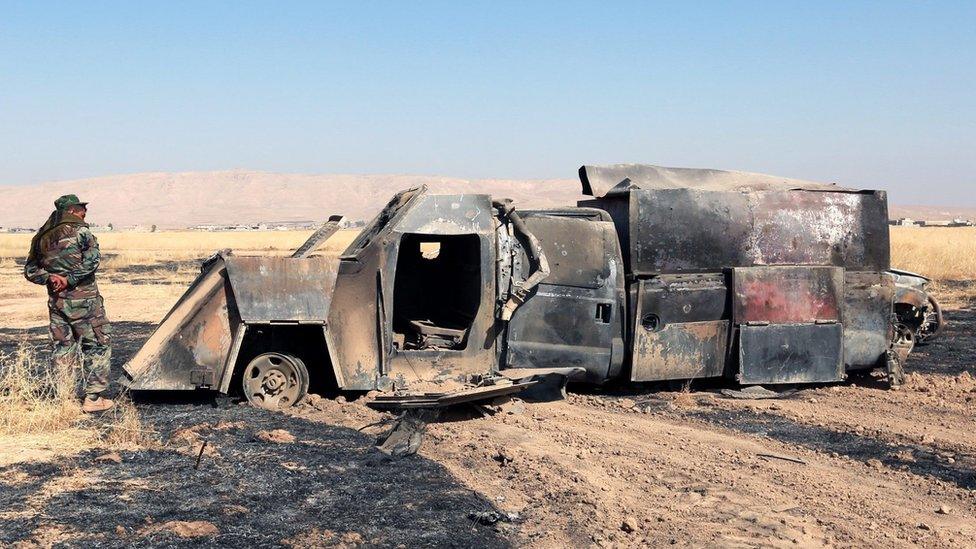Collapse of IS will lead to attacks, say EU officials
- Published
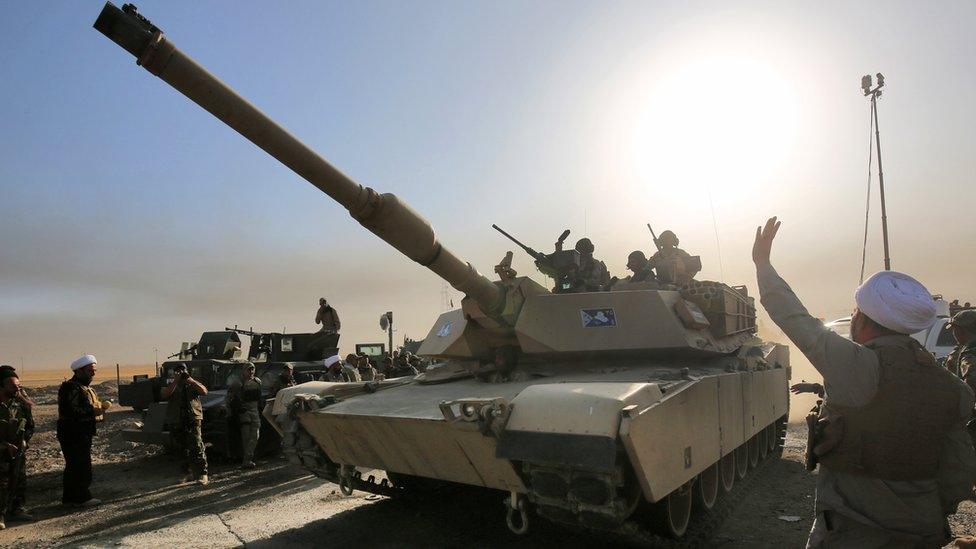
Iraqi forces advancing on the city of Mosul.
Senior EU officials have warned that the threat of terrorism could increase as jihadist group Islamic State (IS) faces a major offensive.
EU Counter-Terrorism Co-ordinator Gilles de Kerchove said IS would seek to "reassert itself" by encouraging existing cells or individuals to carry out attacks.
Europol director Rob Wainwright said this was a "crucial time".
Military pressure had, in the past, "caused IS to lash out," he added.

Why are officials concerned?
The warnings came as the EU's security commissioner, Julian King, told German daily Die Welt that "the recapture of the city of Mosul, the northern Iraqi stronghold of IS, could lead to dangerous IS fighters returning to Europe".
Mr de Kerchove said Europe would struggle to "digest" the 1,500 and 2,000 "foreign fighters" who might return to Europe if IS was driven out of its strongholds in Mosul and Raqqa. He said that number could also include the families of European jihadists and radicalised children who had grown up under IS control.
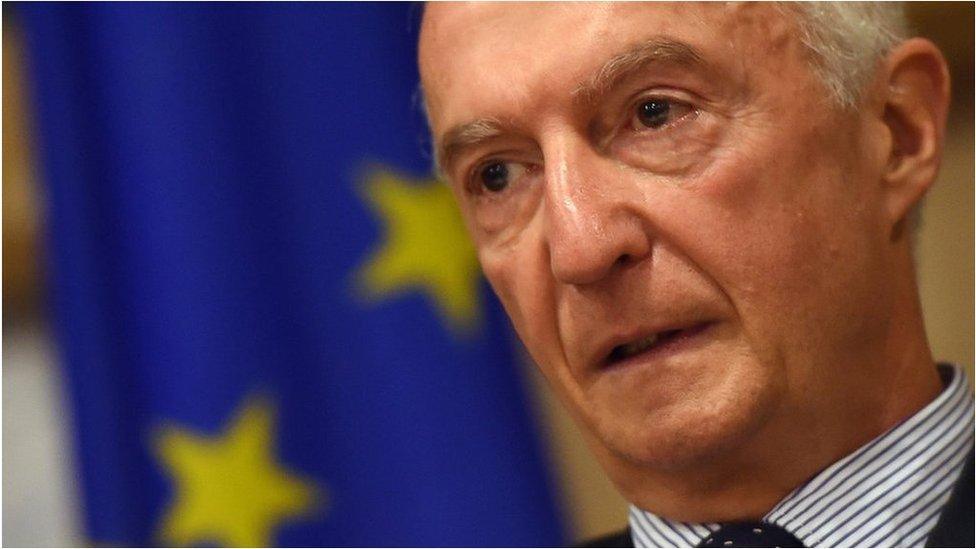
Gilles de Kerchove warned that IS could push for attacks in Europe
His concerns were shared by the former head of the Metropolitan Police counter-terrorism command, Richard Walton.
"IS have known for some time that this offensive in Mosul was going to happen and obviously an offensive in Raqqa will follow and there will be a 'Raqqa scatter' of foreign fighters back to their home countries," he said.
"It's highly likely that IS would have dispatched foreign fighters back to their homelands in anticipation of them losing their physical caliphate."

How is the threat changing?
As IS lost territory, Rob Wainwright told the BBC that Europol had observed a "drying up" of the numbers travelling to support the jihadist group and an overall increase in those coming back.
The fall in those travelling, Europol believes, is in part due to effective policing. But de-radicalisation experts have told the BBC that military defeats and an increasing understanding of the tough conditions in IS territory have also made the journey less attractive.
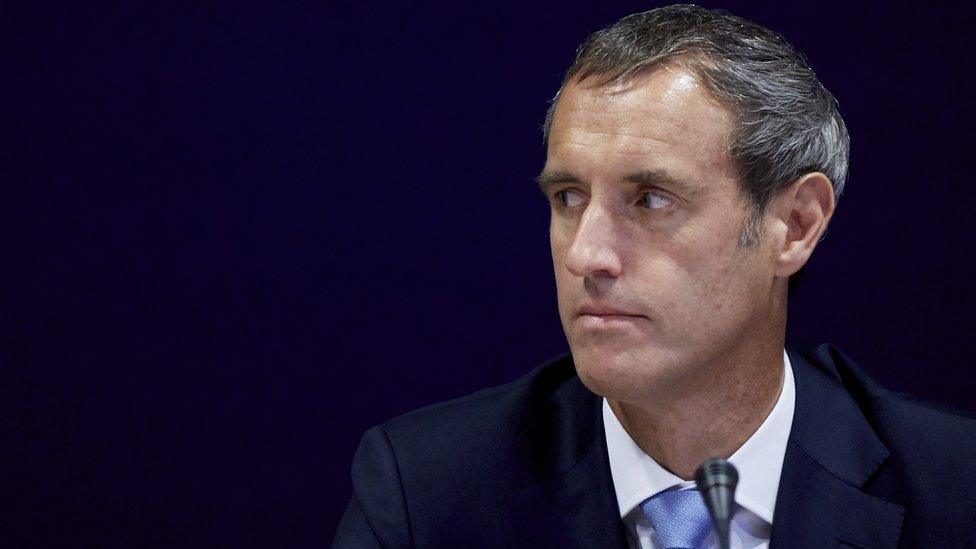
Rob Wainwright said Europol had seen an increase in the number of fighters returning from Syria and Iraq
But could IS be changing its strategy? In May, an audio recording attributed to the now dead IS propagandist Abu Muhammad al-Adnani encouraged would-be jihadists not to travel, but to carry out attacks in the West.
He also argued that the loss of military territory would not mean the end of the jihadists' desire to fight.
Mr de Kerchove warned that Europe had to improve its identification of people arriving in the EU, which required better use of biometrics and greater sharing of data.
Officials acknowledge that it may be a challenge to collect evidence that could lead to the conviction of a large number of returnees. Many jihadists who cannot be convicted would have to be monitored, which required up to 20 officers per individual, Mr De Kerchove said.

How easy would it be for fighters to leave IS?
IS tries hard to prevent desertions, and severely punishes those caught trying.
An activist for the group "Raqqa is Being Slaughtered Silently" said leaving the area would be extremely difficult. Not only had checkpoints been set up, foreign fighters had had their passports confiscated and burned when they joined IS, the activist said.
Those leaving would also have to avoid capture by enemies of IS. The BBC has recently reported on one camp where deserters and IS captives are held.
Some fear IS fighters may seek to hide among the large numbers of civilians trying to flee. Aid Agencies have warned that the recent offensive may displace hundreds of thousands of people.
But a Kurdish security source suggested fighters travelling undercover risked being exposed by those they had helped to oppress.

How prepared are the UK authorities?
According to Richard Walton, the UK government has significantly increased its deployment of police and intelligence abroad in preparation for the defeat of IS.
The UK had now become a "hostile environment" for terrorists and officials were now seeking to protect British nationals on foreign holidays, he said.
But the return of jihadists to the UK will also put pressure on the custodial system, and on those charged with trying to help them reject terrorism.
Ian Acheson, who carried out a review of radicalisation in prisons for the UK government, said when he visited prisons they were "not forecasting at all" what numbers might be coming into the prison system. He was optimistic that this had since changed.
The National Police Chiefs Council told the BBC that the Counter Terrorism policing network "is working 24/7 with the security services and other partners to keep the public safe".
- Published18 October 2016
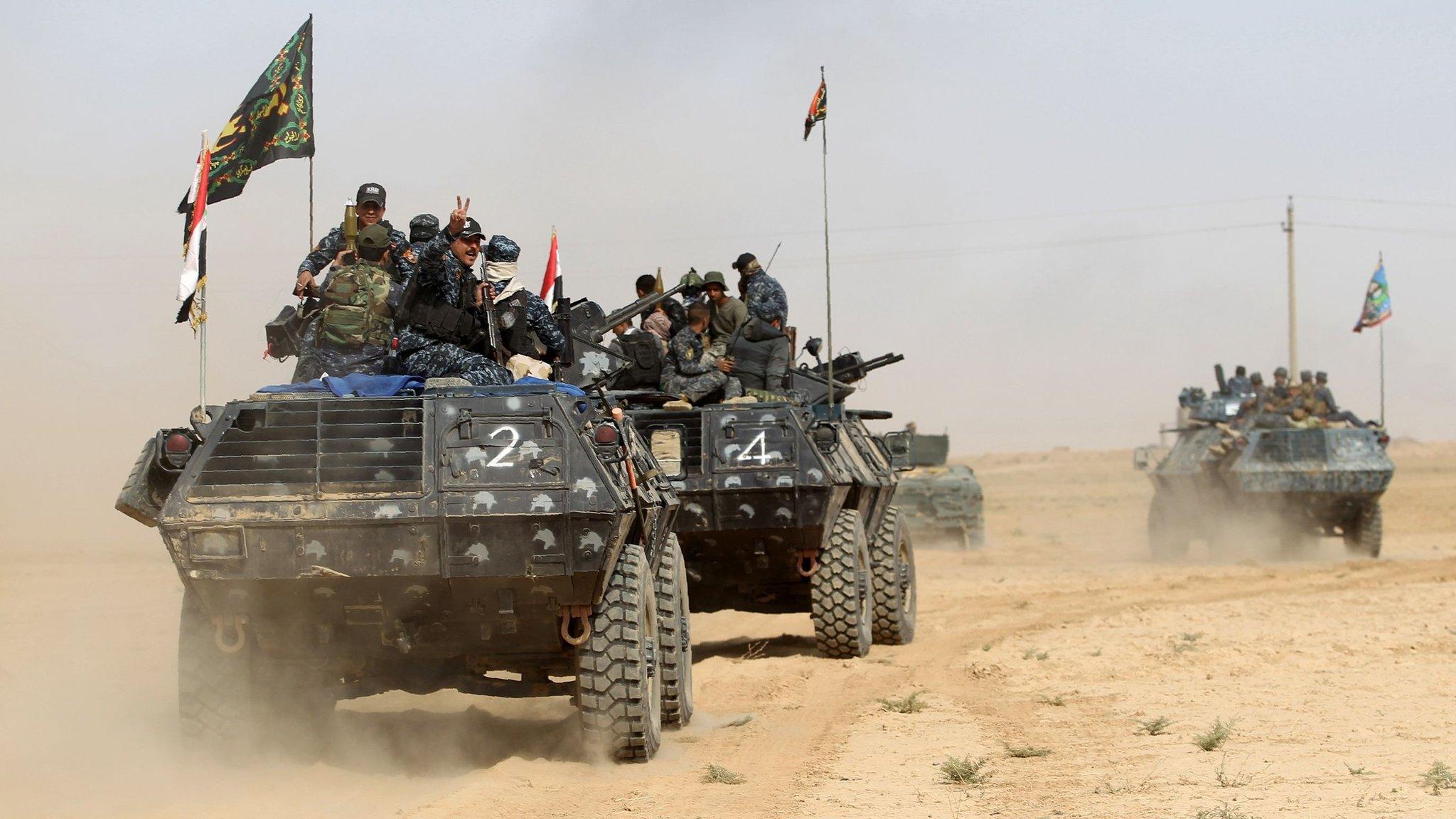
- Published18 October 2016
